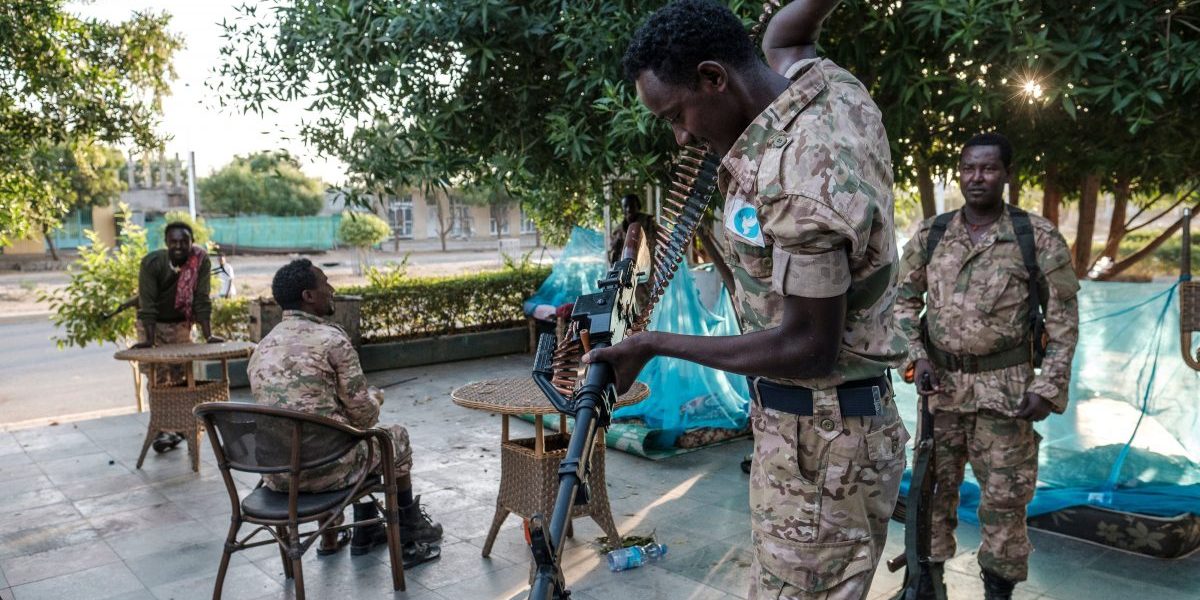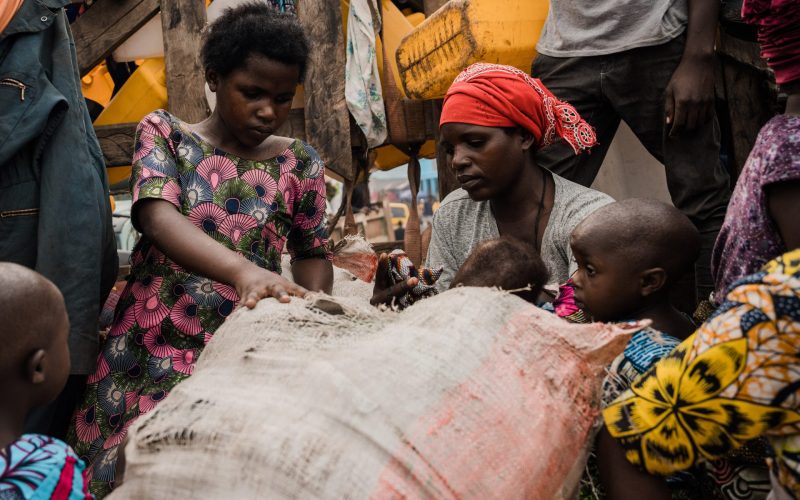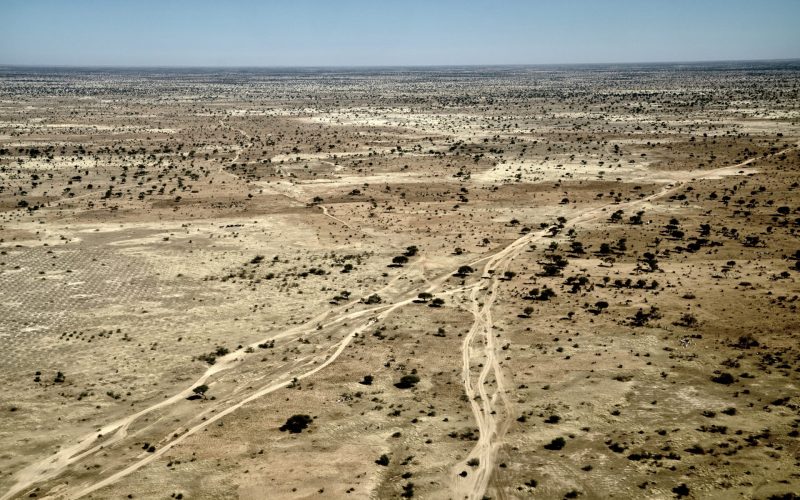The attack was orchestrated by armed forces loyal to the Tigray People’s Liberation Front (TPLF), the party that controls Tigray, and which until Abiy’s ascent to power controlled the country. The violence is linked to the uproar caused after the TPLF ignored federal orders to postpone elections in 2020 due to COVID-19. Abiy prematurely proclaimed victory at the end of November 2020 after just four weeks of fighting.
Today, peace is elusive. A six-month national state of emergency was declared on 2 November 2021 and the conflict has escalated to such an extent that UN observers fear the outbreak of full-scale civil war. Furthermore, as rebel forces gain territory and begin to encroach on the capital, Addis Ababa, Abiy’s government has called on civilians to take up arms and join the war effort. On 22 November, the prime minister announced that he would personally lead his troops. The conflict is complex, with deep historical roots. However, the current conflict in Ethiopia is emblematic of a wider continental trend: the militarisation of politics.
Militarisation refers to situations where disputes within or between states are not settled politically but rather take on a military character. In other words, disputes for which it is possible to find political solutions, are rather settled militarily. And the further the conflict escalates, the more distant political settlement becomes.
Militarisation, in many cases a legacy of colonial rule, has been a part of African politics since countries gained their independence. Colonial rule itself was rooted in military conquest and imposed through violence. The Bundeszentrale für politische Bildung (a German federal government agency) describes the two sides of militarisation. In terms of its qualitative aspect, ‘militarisation means to gear a state or society toward the needs of a military environment or to subject a community to military requirements’. Its quantitative aspect refers to the expansion of weapons arsenals and the increased deployment of military personnel.
Apart from the trend of militarisation, in Africa military coups and civil armed conflicts have also been a feature of politics in many countries. The most prominent examples of this include civil war in Liberia (1989-1997; 1999-2003), Sierra Leone (1992-2002), Guinea-Bissau (1998-1999), and Côte d’Ivoire (2002-2007; 2010-2011). Africa is particularly vulnerable to military coups, the earliest examples of which include Ghana shortly after independence, and Benin, Togo and Congo-Brazzaville in the 1960s. The most recent occurred just this year, in Guinea and Sudan, where ruling governments were ousted by the military in September and October respectively. Before that, the continent was rattled by repeated coup attempts and successful coups in Mali and Niger, amongst others, and a successful coup in Zimbabwe in 2017 (although it has been called a ‘soft coup’).
By 2017 Africa had seen a total of 200 successful and failed coups d’état. This despite existing African Union (AU) policy frameworks for the establishment of peace and security, abolition of unconstitutional changes of government and strengthening democracy. The Lomé Declaration of July 2000 on unconstitutional changes of government and the 2007 African Charter on Democracy, Elections and Governance are the two most important ones. The number of coups in Africa began to decline in the decades after 2000 with the implementation of the Lomé Declaration and the AU’s initial adherence to its obligations under the declaration.
The Lomé Declaration grants the AU the power to suspend member states in which a government took power unconstitutionally. Since 2003, this has happened 14 times. However, coups and militarisation persist due to inconsistent and weak implementation of these frameworks on the part of the AU. For example, following the battle-death of Chad’s president, Idriss Déby earlier this year, the Transnational Military Council (TMC), led by his son, seized power in direct violation of Chad’s constitution. Rather than suspend Chad from the AU or impose any sanctions, the Peace and Security Council (PSC) simply expressed its concern over the situation.
In contrast, following the 2020 coup in Mali and 2019 coup in Sudan, the AU was quick to exercise its power of suspension. The controversy surrounding the PSC’s decision on Chad notwithstanding, the outcome is not entirely surprising since the country is a regional power. Many neighbouring states feared that suspension from the AU could further destabilise the country.
Increased military expenditure on the continent is also worrying. In Africa military expenditure is increasing consistently and more rapidly than in other regions in the world. Over the last decade, African military spending has increased by 17%. With a total spend of $41.2 billion in 2019, it comprised 2.1% of global total.
Although militarisation can be employed by the state, it can also be used against it. In the Tigray war in Ethiopia, claims that the state has the monopoly on the use of force and control over its territory are being challenged. Many of Ethiopia’s roughly 80 ethnic groups have their own militias. Some have now joined forces with the TPLF to form the Tigray Defence Forces (TDF).
Stability in the Horn of Africa is threatened. Abiy received a Nobel Peace Prize in 2019 for a historic peace deal brokered with Eritrea. Eritrea’s involvement in the current conflict on the side of the Ethiopian army, however, risks undoing this progress. Tigrayan forces have already retaliated with missile fire on the Eritrean capital, Asmara. The conflict has also created a refugee crisis. Ethiopia’s relationship with Sudan is of particular concern here. Itself highly militarised, Sudan has become a haven for refugees fleeing Tigray, adding to regional tensions.
Militarisation is hard to confine within national borders. In Africa, political resolution and negotiation is vital. What is essentially a political dispute in Ethiopia is on the brink of turning into civil war. With neither party willing to yield, it warns of a dangerous pattern, that of choosing military resolution over political compromise. The rise in militarisation on the continent threatens existing political settlements within and between states and does not bode well for the future.








